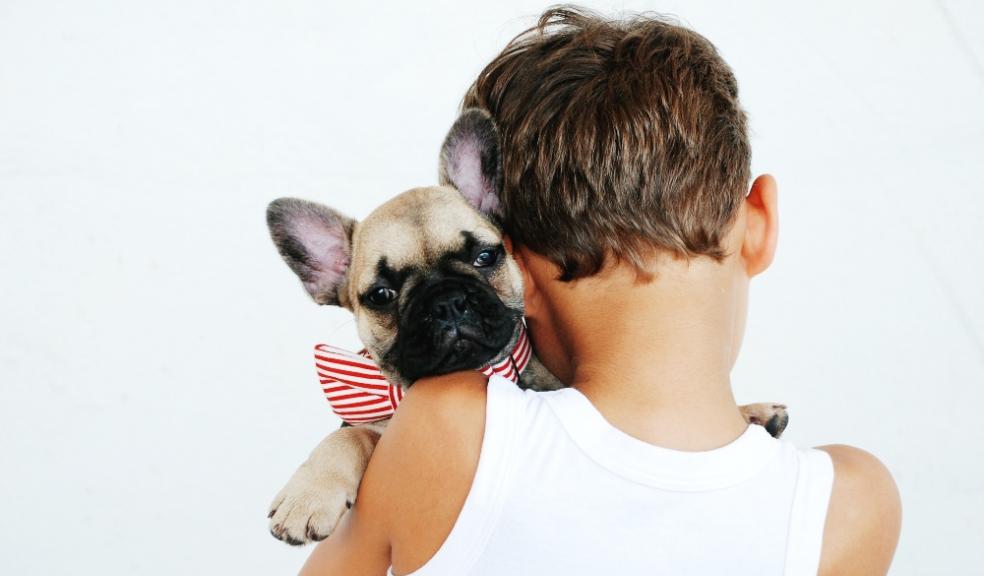
Helping Your Family Through Pet Grief
Todays article is written by Julie Wood, who is an expert in Pet Grief and specialises in helping grieving pet owners process their grief so they can enjoy happy memories of their pet.
Pets are part of the family, and when they pass away it can be devastating for the whole family.
There can be feelings of guilt and anxiety as well as physical symptoms such as sleep issues, changes in appetite or a general feeling of being unwell.
Don’t let anyone dismiss your feelings of grief or sorrow. Some people grieve for their animal more than for other humans, and this is nothing to feel guilty about. When you compare the amount of time that you spent with your pet compared to how much time you spent with the person who died, it is natural that your pet would leave a bigger hole in your life.
If your pet is unwell and difficult decisions may have to be made it is important to explain to any children the concept of euthanasia. Use age-appropriate language, but be careful to avoid the phrase ‘putting (the animal) to sleep’. This can lead to misunderstanding, especially in younger children. They may expect their fur baby to wake up again, or may fear going to sleep themselves in case they don’t wake up.
The word ‘loss’ can also be problematic, even with adults. We tend to say ‘Sorry for your loss’ because it sounds so much kinder than ‘sorry your pet has died’. However, we usually find things that we have lost (keys, purse etc) and part of your mind may keep you searching if it is being repeatedly told that the animal is lost.
Quite often the death of a pet is the first bereavement that a child experiences. Helping them through it can give them the skills they are likely to need later in life. It is natural for a child to be curious about death and to want to talk about it. It is not being morbid or dark, it is part of their learning process. You can help them by encouraging conversation and noticing any changes in their behaviour or personality. Quieter children may become more demanding for your attention and children who are usually more outgoing can become withdrawn. They may think talking about it will upset you or other members of the household. Separation anxiety and loss of confidence is a common response to grief.
A healthy way to start moving through the grieving process is to honour the life and death of your pet with some kind of ceremony or memorial. With humans, we do that with a funeral service and perhaps a wake. With animals, people often don’t know what to do. Some like to get their pet’s ashes back if they have been cremated, and either keep them in an urn or scatter them in a special place. With smaller animals, sometimes it might be appropriate to bury them in the garden. If this is something that appeals to you, then there are some things you will need to consider.
Are you planning to live where you are currently at for the rest of your life? If not, how will you feel leaving your fur babies behind? Do you have wild animals in your area? Think how distressing it will be to find your little one dug up by foxes or disturbed by moles. Some alternative ways are to scatter your pet’s ashes in a flower pot with a favourite plant in so that you can take it with you if you move. Some people put their pet’s collar around the plant pot too. There are many talented crafters who create jewellery such as lockets where you can keep fur or photographs.
Some of my clients just have a favourite photograph out on display.
If your fur baby was the family pet and, particularly if you have children, it’s important that everyone feels included in the decisions. A lovely idea one of my clients had was to make an album about their dog. There were photos inside, and the oldest child wrote a poem and the younger ones wrote stories and drew pictures. They made an occasion of it. They put a blanket on their living room floor and had a picnic, and put together the album between them. Telling stories and remembering the good times can be very healing.
Remember that adults need comforting as well as children. Don’t suppress your emotions. They will always find a way out. Don’t rush to get another pet, but don’t decide never to ever get another animal either. Give yourself a chance to grieve. Don’t let anyone tell you that grieving for a pet is wrong. Ignore anyone who says you are taking too long to get over the death. There is now right or wrong amount of time to recover after the death.
You may find that a recent death of a pet will bring back feelings of grief from the past that you thought you had come to terms with. The person or pet who died previously might be constantly on your mind. I have had clients - who felt guilty about euthanising their pet - experience waves of grief from years before when they had felt guilty about placing their elderly parent in a care home.
It’s important to remember that grief is a natural process and that everyone experiences it differently.
If you need any more help, my website is at www.petgriefexpert.com or you can see some of my videos on YouTube https://www.youtube.com/channel/UC02EsG9x0VzxDGbbMVeoo3A or pick up some more tips from my Facebook page. https://www.facebook.com/julie.spitler.96
Cover Photo by Alicia Jones on Unsplash













